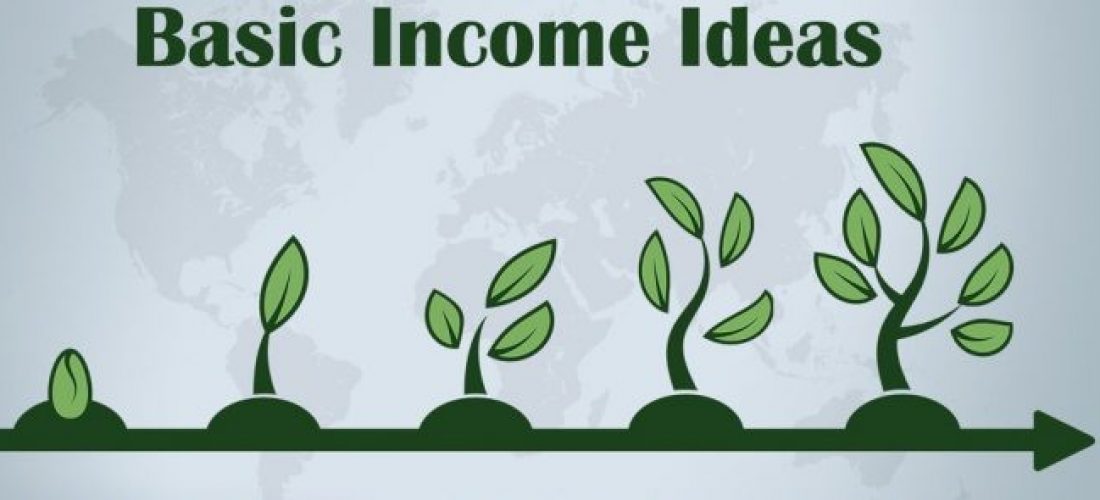Un articolo di Giuseppe Allegrai e Roberto Ciccarelli in merito al “quinto stato” ed ai nuovi diritti, compreso il reddito garantito. Il testo è in inglese
For the first time since 1848, a renewed Europe from the bottom up is possible: with the new social coalitions of the Fifth Estate.
‘A spectre is haunting Europe’: the spectre of the Fifth Estate, which follows Sieyès’s Third Estate and the Fourth Estate of peasant workers and the proletariat. The Fifth Estate can become ‘a new kind of proletariat‘, but without any consciousness of class. It is made of stateless people, the outcast ‘precariat’ of Europe, to whom a new social figure is connected, ‘the included outcast’. This is the one who pays taxes, votes, expresses his/her opinion in real or virtual squares, but never comes out from the grey area between work and non-work.
This stateless person is the puzzle of contemporary citizenship. It is the product of the current European governance: a system formed by national governments and global economic institutions deferring to a technocratic elite and to a form of statism without a State. The outcast is left outside parliamentary representation, trade union or existing business. It floats in the empty space created by the disappeared balance between secular citizenship and the state, state sovereignty and the authorities that govern their lives at a super-national level (the European Central Bank, the International Monetary Fund, the World Bank: the ‘troika’ which monitors the crisis of European states and their populations).
Understanding the Fifth Estate
The Fifth Estate is an existential condition for millions of workers, whether self-employed, temporary or freelancer workers, skilled or mobile workers, ‘precarious’ workers or simply working poor. They are knowledge workers, chain workers, communication or health care workers, mini-job workers, or contract workers in the arts and culture sector.
The Fifth Estate, however, is also the condition for millions of non-working people in the age of unemployment in the European Great Recession (2008 onwards); a condition that affects the existence of young people Not in Education, Employment or Training (NEET) as well as that of those over-40s and -50s.
No rights or protection can be thought of for it. Its subjects are stateless people, as they are excluded from social citizenship, and always subjected to the chance of becoming poor. They are the ‘outcasts’ of traditional labour law in the crucial transition from the Welfare State to the Workfare of neoliberal governance. The subjects of the Fifth ‘precarious’ Estate are stateless and outcasts in that they often live without class identity and political community. Although they are the natives of the particular country in which they live, today they are as foreign and barbaric as the migrants in our midst in those same countries. Both these natives and the migrants belong to the ‘community of those without community’. Their citizenship is without a State, because the State does not recognize their citizenship. This is especially true for Italy, with her 8 million ‘atypical workers’: precarious, self-employed or temporary workers, without a ‘typical’ work contract and deprived of social citizenship.
The Fifth Estate is the condition of common power
The Fifth Estate claims and practices equality, social justice, independence and solidarity. Equality is a product of social cooperation. When it loses its claims for abstract universal law, it acquires the profile of a disturbing power for formal democracy. The everyday practices of millions of people, who are crushed by ruling elites, produce innovative relations in the sharing of good practices, and the setting up of a new citizenship. The Fifth Estate is the condition of this common power, a collective democratic voice: a claim for a new society, against the politics of austerity. The Fifth Estate is the power of a collective redemption against the plunder of financial capitalism and its permanent ‘class struggle from above’. The Fifth Estate shall be all or it shall not be.
The Fifth Estate of self-organization and the new mutualism
In recent years the idea of the Fifth State has allowed for the formation of a widespread network of people who exchange their experience and experimentation, sharing their attempt to practice new independent forms of life and work. The Fifth Estate fights to achieve social justice, solidarity, cooperative mutualism, co-working and autonomy, and to affirm a new society against the austerity of the global recession.
In the USA, for instance, it is worth mentioning the Freelancers union, a ‘Federation of the Unaffiliated’, as their motto says. It consists of hundreds of thousands of ‘independents (workers) united to build a better future’. Their work and struggle for ‘the radical notion of fairness’, with political action and new mutualism, succeeded in obtaining a ‘Freelancer Union Medical Insurance’. In Italy, ACTA (Associazione Consulenti del Terziario Avanzato – Association of the Consultants of Advanced Tertiary) promotes the self-organisation of independent workers connected to new occupations with no professional qualification. Another case worth mentioning is the STradE (Sindacato Traduttori Editoriali – Union of Editorial Translators), which signed a supplementary health care agreement, Mutua Elisabetta Sandri, on behalf of its ordinary members and associates. The agreement was signed in partnership with the mutual aid society Insieme Salute (Together Health), and was dedicated to Elisabetta Sandri, a ‘self-employed’ colleague who died prematurely after a long and courageous fight with her disease, and with an unfair health system that prevented her from enjoying the same rights as other categories of workers.
These are just a few examples of the self-organization of the Fifth Estate by which its self-protection is enacted and a new idea of social citizenship promoted. This reveals an unprecedented social coalition between movements, associations, and the people, struggling against neo-liberal dogma.
The social coalitions of the Fifth Estate: from the cities to a new social Europe
Social coalitions of the Fifth Estate first began to be formed in the cities. Echoing Guy Debord’s psychogeographic dérive, Henry Lefebvre’s droit à la ville, or David Harvey’s rebel cities, they all claim a new right to the city. As Harvey put it during an interview with Il Manifesto on the occasion of theCitizenship, Orientalism and the Commons seminar at Teatro Valle in September 2011, this stands as ‘a network for the many forms of proximity activism in the cities’.
These localised social coalitions create networks between freelancers’ associations, clubs, social organisations and movements, generating new forms of work and cultural and social enterprise. In this respect, they well reflect what Richard Sennet calls: ‘the essence of urbanity, which is that men can act together, without the compulsion to be the same’.
A remarkable symbol of a new institution of self-government of the commons is offered in this direction by Teatro Valle Occupato in Rome. The idea of the common good encompasses here theatre, cultural and knowledge works, politics and enterprise for people who desire to regain not only their lives, but also the social spaces where they can experiment with new forms of collective life, as they often put it in their interventions.
What we see here in a broad perspective is a unity in diversity that promotes self-organization and self-government in the city, creating a new idea of society that moves from a local to a post-national constellation as Jürgen Habermas anticipated already twenty years ago; that is to say, a European political space based on a federative pact of autonomous cities.
This is a movement for more social justice, equality, social cooperation and independence of life and work. It says with Étienne Balibar: ‘a new Europe can only come from the bottom up’. This new Europe must be a social Europe, allowing for the welfare of the Fifth Estate and the people crushed by neo-liberal plunder.
Real freedom for all (Philippe Van Parijs) begins with a universal basic income and has to promote a pan-European solidarity among all the people who have chosen to live in this continent. For the first time since 1848, a new Europe from the bottom up is possible: with the new social coalitions of the Fifth Estate.
References
Giuseppe Allegri. ‘New Social Movements and the Deconstruction of New Governance: Fragments of Post-Modern Theories in Europuzzle’, European Journal of Legal Studies, Vol. 1, No. 3, (2008).
Giuseppe Allegri and Roberto Ciccarelli, La furia dei cervelli, (Roma: manifestolibri, 2011).
Giuseppe Allegri and Roberto Ciccarelli, Il quinto stato. Perché il lavoro indipendente è il nostro futuro: Precari, autonomi free lance per una nuova società, (Milano: Ponte alle Grazie, 2013).
Étienne Balibar. ‘A new Europe can only came from the bottom up‘,OpenDemocracy, 6 May 2013.
Basic Income Network Italia (eds.). Reddito per tutti. Un’utopia concreta per l’era globale, (Roma, Manifestolibri, 2009).
Michael Blecher et alii. Governance, società civile e movimenti sociali. Rivendicare il comune, (Roma, Ediesse, 2009).
Roberto Ciccarelli. ‘Il buon diritto alla Comune’, Il Manifesto, 1 October 2013.
Harvey David. Rebel Cities. From the Right to the City to the Urban Revolution, (London: Verso: 2012).
Richard Sennet. The Fall of Public Man, (New York: Knopf, 1977).
Guy Standing. ‘The Precariat: why it needs deliberative democracy‘,OpenDemocracy, 27 January 2012.
Philippe Van Parijs. Real freedom for all. What (if anything) can justify capitalism?, (Oxford: Clarendon Press, 1995).







